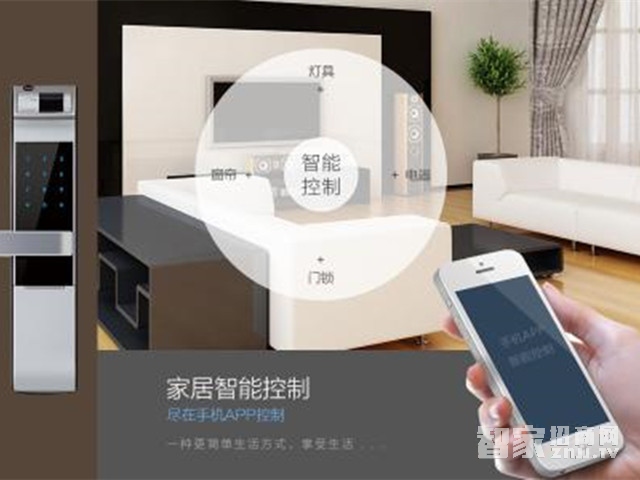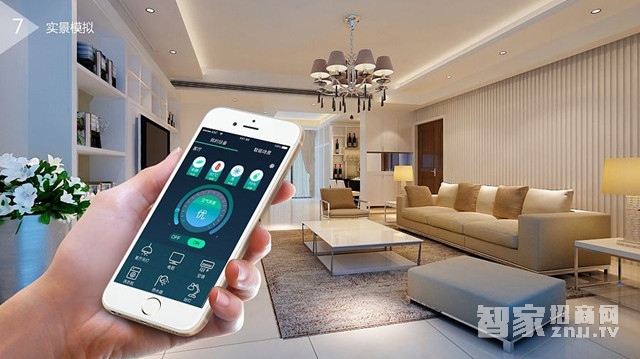The wired smart home is gradually being phased out by the market due to its complicated wiring, difficulty in installation, and high costs. In contrast, wireless smart home systems emphasize simplicity and ease of maintenance. So, what is currently considered the best wireless smart home company in China? Let’s explore what netizens have to say.

**Netizen 1:** A few years ago, when people thought about smart homes, they often remembered the messy wiring that required cutting into walls. This not only ruined the aesthetics but also made upgrades and after-sales service difficult. With the rise of IoT technology, the smart home industry has seen a second revolution. Today, it's moving towards wireless solutions, with four main technologies leading the way.
**1. Wi-Fi Technology**
Wi-Fi-based smart home devices are the most common. They offer fast transmission speeds, low costs, and widespread use. For users, setting up a Wi-Fi-based system is straightforward and doesn’t require special expertise. However, Wi-Fi has some drawbacks: weak security, unstable signals, and high power consumption. These issues make it unsuitable for certain applications like smart locks or sensors. Also, Wi-Fi networks typically support no more than 16 devices, which limits their scalability for larger homes.
**2. Zigbee Technology**
Zigbee stands out for its strong security, using AES encryption that is 12 times more secure than standard bank card encryption. It employs a mesh network structure, allowing each device to communicate through multiple paths, ensuring stability. The theoretical node capacity is 65,300, which is more than enough for even large homes. Zigbee also supports two-way communication, meaning devices can send back status updates, which is crucial for security systems. Plus, it uses very little power, making it ideal for battery-powered devices that can last over 10 years.
**3. Z-Wave Technology**
Z-Wave offers a data transfer rate of 9.6 kbps and an indoor range of up to 30 meters. It’s suitable for narrow-band applications and provides decent stability and security. However, it has limitations—its node capacity is around 256, though real-world performance may be lower. Its tree network structure means if one branch fails, all connected devices lose connectivity. Additionally, it lacks encryption, making it less secure. Z-Wave is more popular abroad than in China, where it’s not widely used.
**4. Bluetooth Technology**
Bluetooth is familiar to many, especially through mobile devices. It offers moderate power consumption and cost, but its short range and point-to-point communication make it unsuitable for large-scale smart home setups. It works well for personal devices like smart speakers or scales, but not for comprehensive home automation.
At present, no single technology is fully mature, and the best option depends on specific needs and preferences.

**Netizen 2:** I'm surprised at the one-sided view in some responses. It seems like people aren't clear on what a real smart home entails. From media coverage, I don’t think there's a clear "best" company. What matters is the maturity of the technology, not just popularity. I’ve been working in this field for three years and have built my own system. Some companies like Midea, Han, and Ziguang are good, but none stand out as the absolute best.
**Netizen 3:** This topic feels like a trap. Smart homes are still in the early stages of development, so there’s no clear leader. Many smart home systems can't be fully covered by a single brand. Wireless systems should be judged based on user numbers, product shipments, and overall market presence. While Xiaomi might have the largest user base, that doesn’t necessarily mean it’s the best. Factors like professionalism, intelligence, service quality, and user satisfaction matter more.
**Netizen 4:** Domestic wireless smart home companies have grown in recent years, but no one claims the top spot in terms of market share or quality. Judging the best or worst is unfair. The key factors are communication technology, hardware, software, and cloud system innovation. Huawei, Oerlikon, and Xiaomi are among the top performers, but Huawei doesn’t produce smart home hardware itself. Their systems are compatible with multiple protocols, making them versatile for third-party integration.
**Netizen 5:** Smart home concepts have been around for over 18 years, but there hasn’t been a major breakthrough. Calling something a "smart home" just because you can control lights via an app is misleading. Until appliances adopt a unified protocol, true intelligence remains a distant goal. But the direction is positive, and exploration is valuable, as long as it's not driven by hype or profit alone.
**Netizen 6:** Smart home setups can be overwhelming with hidden equipment. The current level of "intelligence" is still basic—like automated curtains or lighting. These are just automation, not real smart living. The concept is still in its infancy, and while the future looks promising, we’re far from a true smart home.
**Netizen 7:** There's no one-size-fits-all solution. It depends on what suits your needs. Products may look similar, but features vary. For example, AmazingBOX offers compatibility with third-party devices, DIY scenarios, and even NAS and dual-band routing capabilities—features that make it stand out.
**Netizen 8:** While opinions differ, the user experience is key. I personally prefer AmazingBOX for its reliability and flexibility.
**Netizen 9:** Purple is great for villas or commercial projects, while Haier offers a full set of smart appliances, each with its own strengths.
**Related Suggestions:**
- Article: Q&A | Which Smart Home Company is Best?
- Recommended: Smart Switches, Security Alarms, and Monitoring Systems
If you're looking for a smart home solution, consider your needs, budget, and long-term goals before making a decision.
MINI FAKRA Automotive Connectors
MINI FAKRA 4PIN Male Connector for Cable,Mini Fakra Connector For Pcb,MINI FAKRA 1PIN Female Connector for Cable VersionA
Dongguan Zhuoyuexin Automotive Electronics Co.,Ltd , https://www.zyx-fakra.com